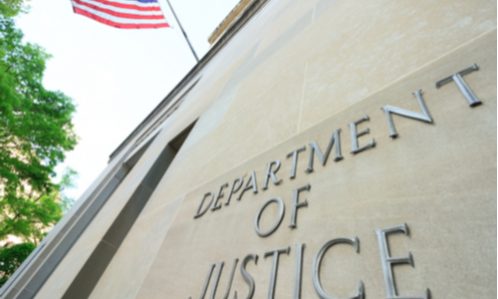Cape Henry Associates (Cape Henry), located in Virginia Beach, Virginia, has agreed to pay $425,000 to resolve allegations that it violated the False Claims Act by failing to inform contracting officers of the company’s organizational conflicts of interest (OCI) in connection with the award and performance of task orders on government contracts. Cape Henry performs manpower analysis, personnel analysis and training services for the U.S. Armed Forces.
The Justice Department alleged that Cape Henry failed to disclose that one of the company’s officers had an ownership interest in KOVA Global, a company to which Cape Henry awarded subcontracts to provide warehouse services in connection with two sole source task orders issued by the Army and General Services Administration (GSA).
“It is critical that companies disclose potential conflicts of interest to protect the integrity of the federal procurement process,” said Principal Deputy Assistant Attorney General Brian M. Boynton, head of the Justice Department’s Civil Division. “We will hold accountable those who knowingly conceal relevant information that may affect the award or performance of a government contract.”
“The failure of government contractors to disclose organizational conflicts of interest harms government procurement, creates unfairness, and can cost the taxpayers money,” said U.S. Attorney Jessica D. Aber for the Eastern District of Virginia.
The Justice Department also alleged that Cape Henry failed to disclose relevant information about a conflict of interest arising from advisory & assistance services (A&AS) performed in 2015 by Q.E.D. Systems Inc. (Q.E.D.), a Cape Henry subcontractor. In connection with a multi-year delivery order under a Navy SeaPort-e contract, Cape Henry would submit project-specific proposals to a Navy program management office that was responsible for determining the scope and funding for each project. At the same time that Cape Henry was submitting proposals to the Navy, Cape Henry was also funding the direct labor of a Q.E.D. employee through a subcontract. This Q.E.D. employee was providing A&AS services to the Navy program office and making recommendations that could potentially affect Cape Henry’s funding and treatment in connection with these project proposals. Cape Henry failed to disclose this conflict of interest to the contracting officer as required by the OCI clause in Cape Henry’s contract with the Navy.
“The Department of Defense requires its contractors to divulge any potential conflicts of interest to maintain the integrity of the military’s procurement process,” said Acting Special Agent in Charge Greg Gross of the NCIS Economic Crimes Field Office. “NCIS and our federal law enforcement partners remain committed to ensuring the good stewardship of taxpayer dollars by fully investigating all allegations of procurement fraud.”
“This settlement highlights the resolve of Army CID and our law enforcement partners to hold government contractors accountable for their actions. The ability to protect and defend the assets of the United States Army is always our top priority,” said Special Agent in Charge L. Scott Moreland of the U.S. Army Criminal Investigation Division’s (Army CID) Major Procurement Fraud Field Office.
Want more news? Subscribe to CPI’s free daily newsletter for more headlines and updates on antitrust developments around the world.

